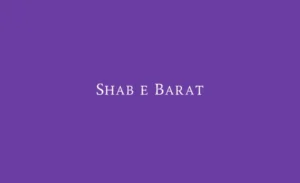Every Muslim faces moments of uncertainty in choosing a life partner, making a career move, starting a business, or taking an important step that could shape the future. In such times, Islam offers a divine solution i.e. Salat al-Istikhara (the Prayer for Guidance), a beautiful Sunnah taught by Prophet Muhammad (peace be upon him) to help Muslims make decisions with faith, clarity, and trust in Allah’s wisdom.
Rather than relying on guesswork or emotion, Istikhara allows a believer to hand their choice over to Allah, asking Him to guide them toward what is truly best in this world and the Hereafter. It is more than just a prayer, it is an act of surrender, showing complete reliance on Allah’s knowledge and decree.
Through this guide, you’ll learn what Salat al-Istikhara means, its importance in Islam, and the exact step-by-step method according to the Sunnah, along with the authentic Dua of Istikhara in Arabic, transliteration, and English translation.
What is Istikhara in Islam?
The word Istikhara (الاستخارة) comes from the Arabic root “khayr” (خير) meaning goodness. Thus, Istikhara means “to seek goodness or guidance from Allah” regarding a decision. It is a voluntary (nafl) prayer that any Muslim can perform at any time (except during prohibited prayer times), seeking Allah’s direction in a matter of confusion or doubt.
Quranic Concept of Seeking Guidance
Allah commands the believers to place their trust in Him and seek His direction in all matters. Allah Almighty says in the Quran Majeed:
Arabic:
وَشَاوِرْهُمْ فِي الْأَمْرِ ۖ فَإِذَا عَزَمْتَ فَتَوَكَّلْ عَلَى اللَّهِ ۚ إِنَّ اللَّهَ يُحِبُّ الْمُتَوَكِّلِينَ
Transliteration: Wa shaawirhum fil amr, fa idha azamta fatawakkal ‘ala Allah, inna Allaha yuhibbul mutawakkilin
English Translation: “And consult them in affairs. Then when you have taken a decision, put your trust in Allah. Indeed, Allah loves those who rely upon Him.” – (Surah Aal Imran, 3:159)
This verse beautifully emphasizes the balance between consultation, decision-making, and reliance on Allah. It teaches believers that after sincere effort and seeking advice, the final step is to place complete trust in Allah’s wisdom. Salat al-Istikhara embodies this Quranic principle by seeking divine guidance before taking action.
Hadith on Istikhara
The method of Salat al-Istikhara is clearly explained in the below authentic hadith.
Arabic:
عَنْ جَابِرٍ رضي الله عنه قَالَ: كَانَ رَسُولُ اللَّهِ صلى الله عليه وسلم يُعَلِّمُنَا الاِسْتِخَارَةَ فِي الأُمُورِ كُلِّهَا كَمَا يُعَلِّمُنَا السُّورَةَ مِنَ الْقُرْآنِ
Transliteration: An Jabir (may Allah be pleased with him) qal: Kana Rasulullah (peace be upon him) yu’allimuna al-istikhara fi al-umuri kulliha kama yu’allimuna as-surata min al-Quran.
English Translation: Jabir (RA) reported: The Messenger of Allah (peace be upon him) used to teach us the way of doing Istikhara in all matters as he taught us a Surah from the Quran. – (Sahih al-Bukhari, Hadith 1162)
This hadith highlights the great importance the Prophet Muhammad (peace be upon him) placed on Istikhara, teaching it to his companions with the same emphasis as a Quranic chapter. It shows that seeking Allah’s guidance should be a regular practice for every believer, not limited to major life decisions alone.
When Should You Perform Salat al-Istikhara?
You can perform Istikhara for any matter of importance, such as:
- Marriage proposal decisions
- Business ventures or partnerships
- Job offers or career changes
- Buying property or traveling
- Educational choices
The recommended time is generally after performing two units (rakats) of voluntary prayer (nafl), usually after Isha prayer or any time outside prohibited hours.
How to Perform Salat al-Istikhara
Here’s the authentic Sunnah method of performing Salat al-Istikhara, step by step:
Step 1: Make Intention (Niyyah)
Begin with a sincere intention in your heart: “I am performing two rakats of Salat al-Istikhara to seek guidance from Allah for [mention your matter].”
Note: Niyyah is not spoken verbally; it’s made internally.
Step 2: Perform Two Rakats of Nafl Prayer
Follow the below guidelines:
- Perform two rakats (units) of non-obligatory prayer.
- In the first rakah, recite Surah Al-Fatiha, followed by Surah Al-Kafirun (109).
- In the second rakah, recite Surah Al-Fatiha, followed by Surah Al-Ikhlas (112).
(These surahs are recommended but not obligatory.)
Step 3: Recite the Dua of Istikhara after the Prayer
After finishing the two rakats, raise your hands and recite the Dua of Istikhara as taught by the Prophet (peace be upon him).
Dua of Istikhara (Arabic, Transliteration & Translation)
The Dua of Istikhara is a heartfelt supplication taught by the Prophet Muhammad (peace be upon him) to seek Allah’s guidance and blessing in making the right decision. It reflects complete trust in Allah’s knowledge, power, and wisdom over our limited understanding.
Arabic:
اللهم إني أستخيرك بعلمك، وأستقدرك بقدرتك، وأسألك من فضلك العظيم، فإنك تقدر ولا أقدر، وتعلم ولا أعلم، وأنت علام الغيوب. اللهم إن كنت تعلم أن هذا الأمر خير لي في ديني ومعاشي وعاقبة أمري، فاقدره لي ويسره لي ثم بارك لي فيه، وإن كنت تعلم أن هذا الأمر شر لي في ديني ومعاشي وعاقبة أمري، فاصرفه عني واصرفني عنه، واقدر لي الخير حيث كان ثم ارضني به.
Transliteration: Allahumma inni astakhiruka bi ilmik, wa astaqdiruka bi qudratik, wa as’aluka min fadlikal azeem, fa innaka taqdiru wa la aqdir, wa ta’lamu wa la a’lam, wa anta allamul ghuyub. Allahumma in kunta ta’lamu anna hadhal amra khairun li fi deeni wa ma’ashi wa aqibati amri, faqdurhu li wa yassirhu li thumma barik li fihi, wa in kunta ta’lamu anna hadhal amra sharrun li fi deeni wa ma’ashi wa aqibati amri, fasrifhu anni wasrifni anhu, waqdur li al-khaira haythu kana thumma ardini bihi.
English Translation: “O Allah, I seek Your guidance through Your knowledge and seek ability through Your power, and I ask You from Your great bounty. For indeed, You are able while I am not, You know while I do not, and You are the Knower of the unseen.
O Allah, if You know that this matter [mention your specific matter] is good for me in my religion, my livelihood, and my outcome, then ordain it for me, make it easy for me, and bless it for me.
But if You know that this matter is bad for me in my religion, my livelihood, and my outcome, then turn it away from me and turn me away from it, and decree for me what is good wherever it may be, and make me pleased with it.” – (Sahih al-Bukhari, Hadith 1162)
Step 4: Mention Your Matter in the Dua
When you reach the phrase “hadhal amra (this matter)”, pause briefly and mention the specific issue you are seeking guidance about, such as marriage, business, or travel.
Step 5: Rely on Allah’s Decree
After praying, place your trust in Allah (Tawakkul). Remember that, istikhara is not about dreams or visions only. The response may come as ease, clarity, or inclination toward one decision. If your heart feels at peace and matters unfold smoothly, it’s a sign of khayr (goodness). If things become difficult or uncomfortable, it may be a sign to avoid that path.
Common Misconceptions about Istikhara
Many Muslims hold misunderstandings about Istikhara, often confusing its true purpose and method as taught in the Sunnah. Here are a few:
- You don’t have to wait for a dream; Istikhara is about clarity, not visions.
- It can be repeated if you still feel uncertain.
- You can seek advice from others after Istikhara; Islam encourages both consultation and prayer.
- Women can perform Istikhara during any permissible prayer time (not during menstruation).
Benefits of Salat al-Istikhara
Performing Salat al-Istikhara brings countless spiritual and emotional benefits, guiding believers toward peace, clarity, and trust in Allah’s divine wisdom. Here are a few benefits:
- Strengthens faith and trust in Allah’s wisdom.
- Brings inner peace and clarity during decision-making.
- Prevents regret by ensuring reliance on divine will.
- Teaches humility and surrender to Allah’s plan.
Hadith Reminder on Trusting Allah
Our beloved Prophet Muhammad (SAW) said:
Arabic:
مَنِ اسْتَخَارَ اللَّهَ لَمْ يَنْدَمْ
Transliteration: Man istakhara Allah lam yandam.
English Translation: “Whoever seeks guidance from Allah (Istikhara) will never regret.” – (Narrated by Tabarani)
This hadith beautifully assures believers that anyone who sincerely seeks Allah’s guidance through Istikhara will never experience regret. True success lies in entrusting our choices to Allah, for His wisdom protects us from harm and leads us toward what is best in this life and the Hereafter.
Conclusion: Seek Guidance, Not Signs
Salat al-Istikhara is a spiritual tool of success for every believer. It reminds us that true peace comes from submitting our will to Allah. Whether your choice brings ease or challenge, remember that Allah knows what is best for your future. Remember that, pray Istikhara with sincerity, act upon what feels right, and trust that Allah’s decree (Qadr) is always for your good.
FAQs about Salat al-Istikhara
Can I perform Istikhara more than once?
Yes, you can repeat it until your heart feels content.
What if I don’t see a dream after Istikhara?
Dreams are not necessary; Istikhara brings clarity, not visions.
Can someone else perform Istikhara for me?
It’s best to do it yourself, but others may pray for you.
Is there a specific time to pray Istikhara?
Preferably before sleeping at night, but any time outside forbidden hours is fine.
What should I do after praying Istikhara?
Take action while trusting Allah’s decision and decree.







One Response
I am extremely impressed with your writing skills as well as with the layout on your weblog.